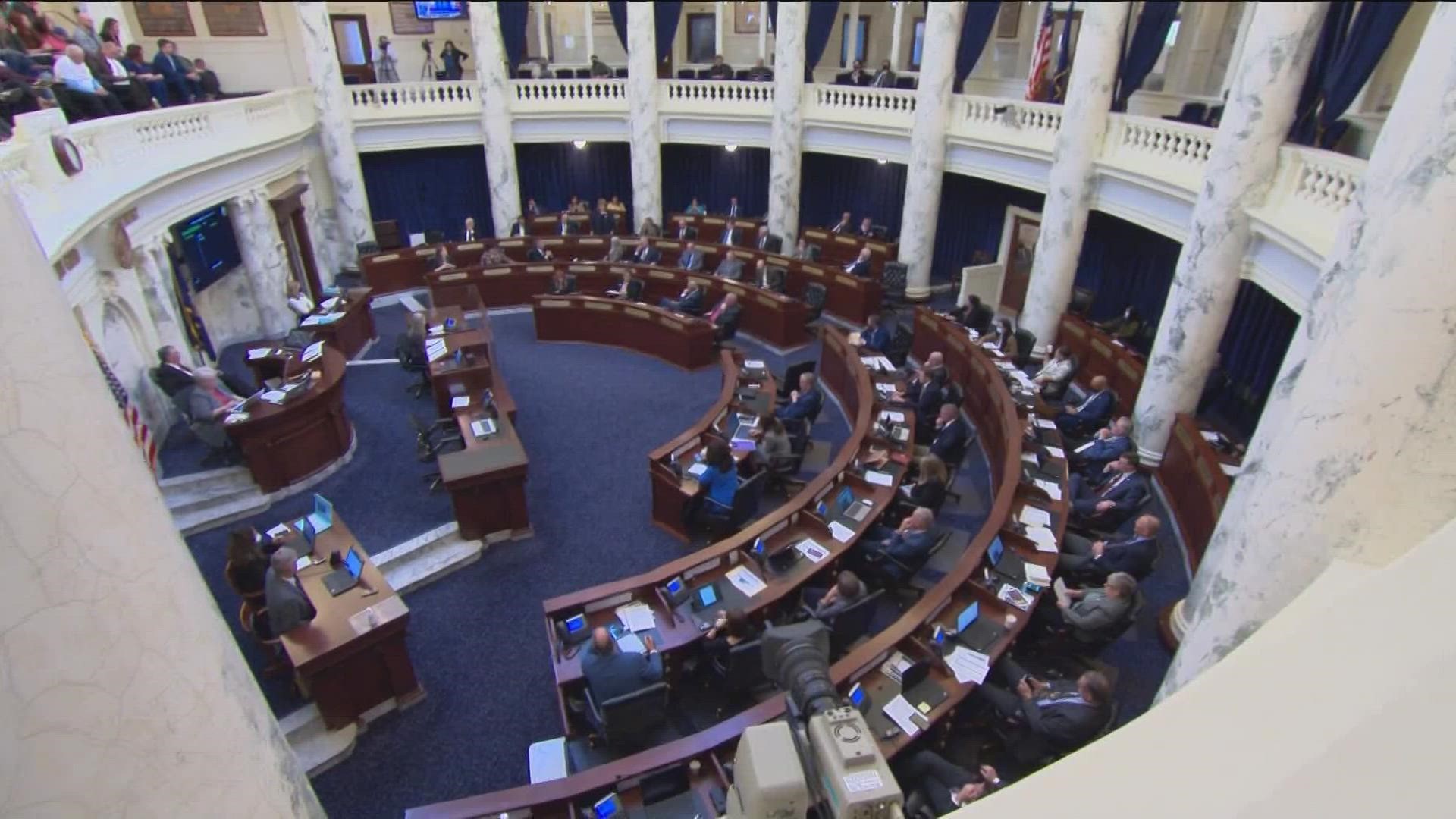BOISE, Idaho — This November, Idahoans have the chance to change the Idaho Constitution, voters will get to decide if the Idaho Legislature should gain the ability to call themselves back into session after yearly adjournment.
Currently in Idaho, only the governor has the power to call lawmakers back to Boise to consider limited legislation, determined by the governor’s office. Assistant House Majority Leader, Republican Rep. Jason Monks, supports the idea.
“I think it's an important function and privilege that we should be allowed to do. I think it's a privilege that's been given to the court. It's also been given to the governor's office," Monks said. "They don't really have to ask our permission or any other. You know, one of the three branches of government to be able to do their job."
Monks believes the idea will prevent messy legislative sessions that drag on in the future.
“Couple of years ago, we never Signy died. The House did, the Senate did and so we were technically in session the entire year," Monks said. "We had to do that because with the only way to make sure that we were able to respond to COVID emergency problems that may have come up and by allowing us to call ourselves back in, will really prevent us from being forced to be a year-round legislature, which really nobody wants."
House Minority Leader, Democrat Ilana Rubel, said she hopes Idahoans turn the idea down.
“My feeling on this is if it ain’t broke, don’t fix it," Rubel said. "We’ve been working very well for more than 130 years with the current system that we have where the governor calls us back in when we are needed to come back in, and I’m really concerned about this proposal to have the legislature call itself back as many times as they want."
Rubel thinks the idea as written also lacks logic.
“I am fearful that it would be extensively abused, and I think the threshold isn't high enough. So, right now what they're proposing in the amendment is that 60% of the legislature would have to want to come in," Rubel said. "Well, if you think about it, the reason they would be coming back in is probably because the governor does not want to call us back yet, because the governor already can call us back and so presumably they would be doing this because they want to do something that the governor does not want."
If lawmakers did call themselves into session and pass something the governor did not like, he could veto it. Lawmakers would need a two-thirds vote to override that.
“So, it would seem to make sense that you would want to have at least 67% so that you could override a gubernatorial veto, because if you're calling yourself back into session to do something that the governor is opposed to, it seems at least to not waste people's money," Rubel said. "You should be doing that only when you have enough support to override a governor's veto."
Monks said it is important for lawmakers to have the ability to discuss major topics in an official capacity.
“I think it's important for us to be able to work as a legislative body. It's not necessarily about passing legislation. It's just whether or not we can get to discuss issues," Monks said. "We may call ourselves back in and decide, 'you know what, there's nothing for us to do or the best course of action is to wait,' and that's okay, too, but having that conversation, I think, is critical."
Rubel argues that the current mechanism works, and in a true emergency, business can be handled.
“If there's a real emergency, the governor will call us back. I've been called back into plenty of special sessions. We have special sessions. When there's a reasonable cause for one, it's not like we can never have a special session other than when we're regular," Rubel said. "It's happened routinely when it's needed and the governor has called us back when it's needed."
Other lawmakers have argued it is also about the principal of allowing the legislature to do their jobs, even if adjournment has already happened. For example, federal COVID dollars sent to the states in 2020, after lawmakers had adjourned.
“It's our job to legislate and it's our job to appropriate all the money, and so if there's funding that comes in emergency funding for something, we need to be there to be able to appropriate that money,” Monks said.
Join 'The 208' conversation:
- Text us at (208) 321-5614
- E-mail us at the208@ktvb.com
- Join our The 208 Facebook group: https://www.facebook.com/groups/the208KTVB/
- Follow us on Twitter: @the208KTVB or tweet #the208 and #SoIdaho
- Follow us on Instagram: @the208KTVB
- Bookmark our landing page: /the-208
- Still reading this list? We're on YouTube, too:

